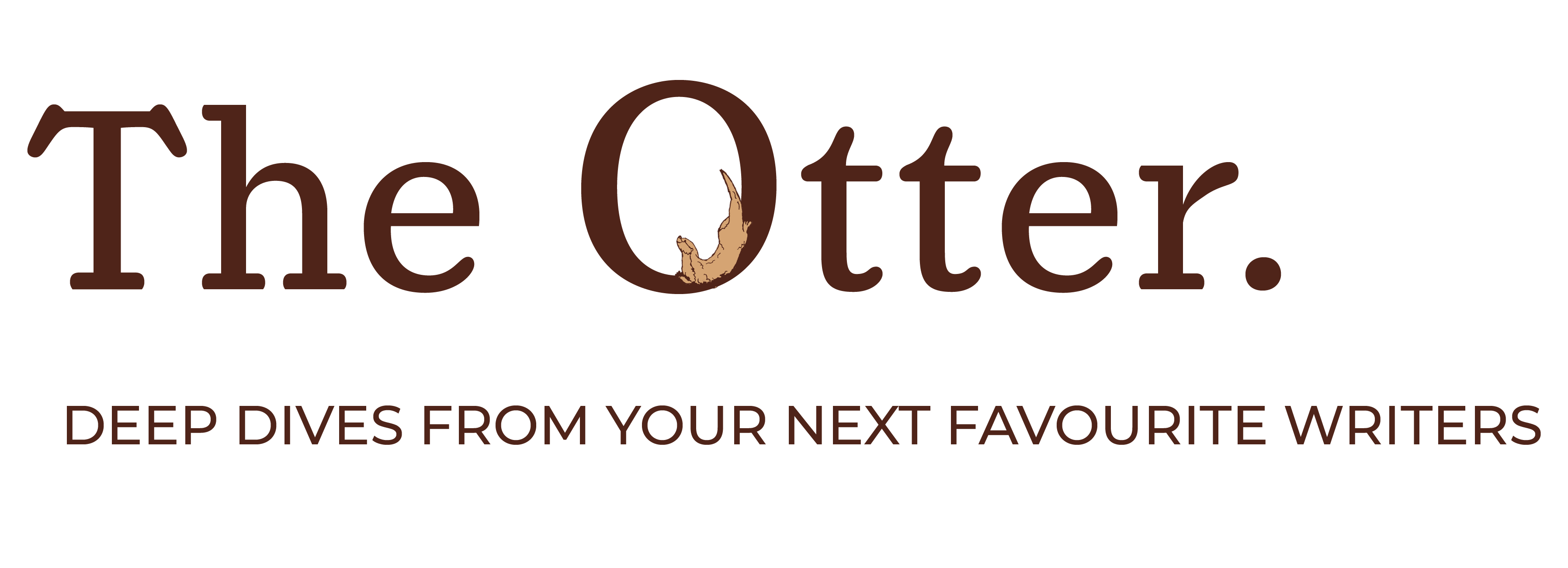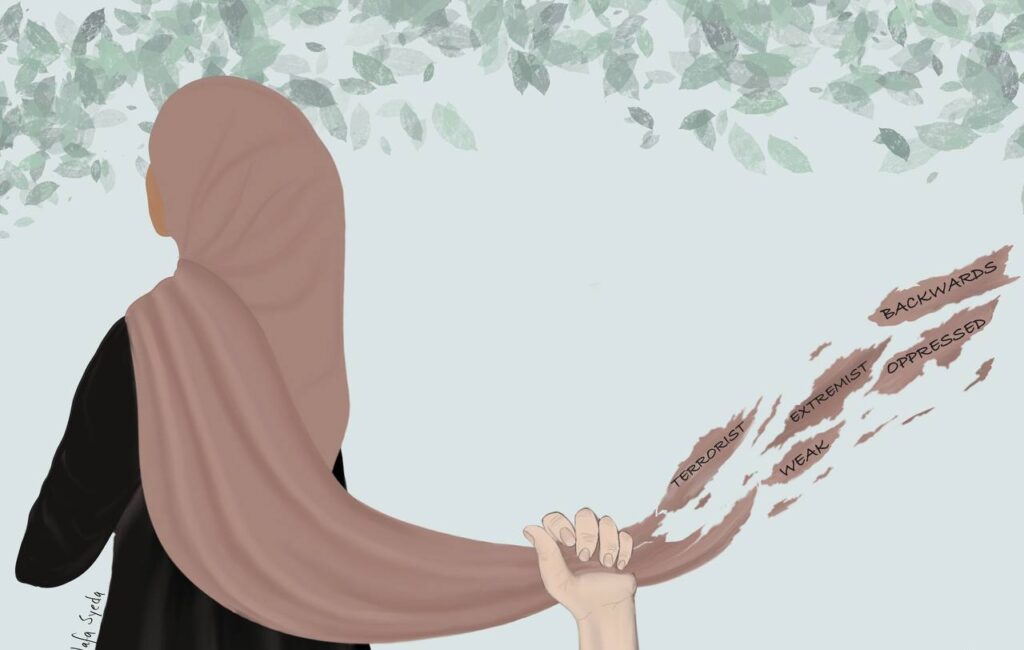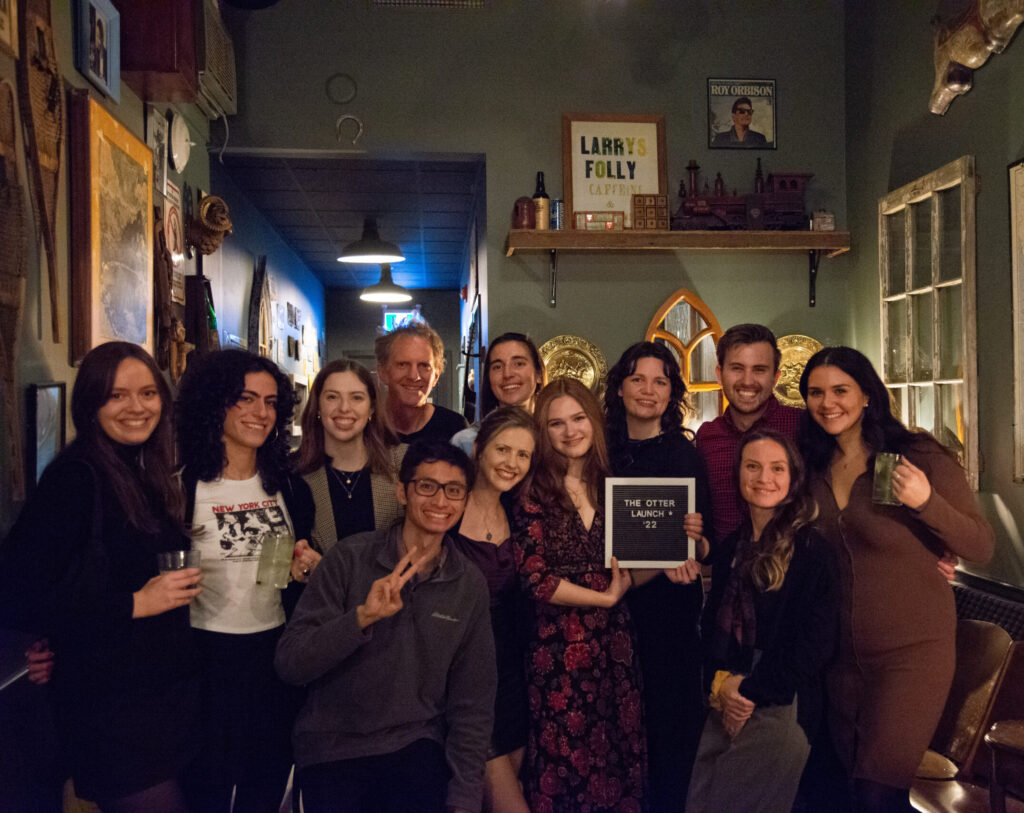It may not be national reading month anymore, but here at The Otter, we’re not on anyone’s schedule but our own. So, we’ve put together a list of our masthead’s favourite long reads for you to dive into any time you want.

Name/Position: Rachel DeGasperis, Co-Editor
Recommendation: “Sarah Polley’s Journey From Child Star to Feminist Auteur,” Rebecca Mead, New Yorker
Where you can find it: https://www.newyorker.com/magazine/2022/11/21/sarah-polleys-journey-from-child-star-to-feminist-auteur
I read Rebecca Mead’s profile of Sarah Polley at one in the morning. I was exhausted and assumed I would pass out within five minutes. I was wrong. Mead’s portrayal of Polley was like watching a scrappy fisherman sailing through a sea of garbage. Examples of said garbage include: being preyed upon by Jian Ghomeshi at 16; dealing with her mother’s early death; skirting danger on Terry Gilliam’s sets; and enduring a three-year concussion after a fire extinguisher fell on her head. Yet, Polley’s good-natured humour and profound sense of purpose (namely, to make art that is thoughtful, meaningful, and ethical) drives the plot forward. If you’re looking for a window into the life of a complex and down-to-earth artist—or just affirmation that not all directors are evil—this one’s for you.
Name/Position: Maddy Mahoney, Co-Editor
Recommendation: “Vanity Fair,” Alexandra Kimball, Maisonneuve
Where you can find it: https://maisonneuve.org/article/2022/09/23/vanity-fair/
This is easily the most accurate account I’ve ever read of what it’s like to be a teenage girl navigating the newly essential but deeply inexplicable nature of hotness. This memoir-style piece walks us through Kimball’s experience at her first “hot girl” job: selling ice cream waffle sandwiches at The Ex (naturally). Lest darting in-and-out of the guillotine-like freezer get too easy, enter Kimball’s new nemesis: Debbie. Kimball’s co-worker complicates her nascent understanding of attraction and worthiness by exuding sexual magnetism without being “technically hot.” If you’re not hooked yet, I’ll take the risk of guaranteeing that you will not get through this one without laughing out loud.
Name/Position: Maya Abramson, Social Media Coordinator
Recommendation: “Forgiving Jaskirat Sidhu,” Aaron Hutchins, Maclean’s
Where you can find it: https://macleans.ca/longforms/forgiving-jaskirat-sidhu/
In April 2018, 16 people on the Humboldt Broncos’ team bus were killed when they collided with a semi-truck. The driver of the truck has since been convicted and sentenced to eight years in prison. Years later, Aaron Hutchins wrote “Forgiving Jaskirat Sidhu,” about the families who have chosen to communicate with the truck driver, and those who cannot bring themselves to do so. Hutchins’ reccounts the aftermath of the tragedy with nuance and compassion. He presents families grappling with the idea of forgiveness in different ways, showing humanity in the full spectrum of reactions. This is an example of narrative journalism at its most powerful.
Name/Position: Brit Weaver, Partnership Director
Recommendation: “A Feast for Lost Souls,” Annelise Jolley, Atavist
Where you can find it: https://magazine.atavist.com/a-feast-for-lost-souls-mexico-disappeared-missing-sinaloa-las-rastreadoras/
The opening scene of this heart-wrenching tale is enough to make a reader stop and take a deep inhale, unsure of whether it’s safe to proceed but pulled by its gentle prose. Annelise Jolley writes about the lives of those whose family members have disappeared in Sinaloa, Mexico, usually as a result of cartel violence. Poetic, almost spiritual, Jolley takes us on a courageous journey of grief and healing through recipes and cooking. We are offered glimpses of Jolley herself, which reminds us that she is there with the families, more than an observer to the people behind bleeding headlines.
Name/Position: Carly Penrose, Head of Research
Recommendation: “The Curse of the Bahia Emerald, a Giant Green Rock that Ruins Lives,” Elizabeth Weil, Wired
Where you can find it: https://www.wired.com/2017/03/curse-bahia-emerald-giant-green-rock-wreaks-havoc-ruins-lives/
This is an oldie but a goodie! Though it was written in 2017, it represents a lot of the things I like about narrative journalism; a snarky author voice, strong research, context, and bold, interesting characters—all of whom are severely flawed. The visuals in this article are gorgeous and complement the piece so nicely. I admit, while I found this article a year ago by googling “best long form narrative articles,” to prepare for my first ever narrative journalism class a year ago, this one holds up! I think anyone who likes a true story with a little cheek—as well as a hint of geology and chemistry woven in—will love it!
Name/Position: Chiara Greco, Art Director
Recommendation: “Drugs Killed 8 Friends, One by One, in a Tragedy Seen across the U.S.,” Lenny Bernstein and Jordan-Marie Smith, Washington Post
Where you can find it: https://www.washingtonpost.com/health/interactive/2022/drug-overdose-deaths-fentanyl-greenville-nc/
When I read this piece a few months back I was overcome with emotion. The narrative follows the lives and eerily similar deaths of eight friends living in Greenville, North Carolina, a small town riddled by the opioid epidemic. It takes the personal stories of grief and loss and attaches them to a larger issue in America. I found myself immersed in the lives of each individual, chronicled alongside multimedia elements. The dedication, reporting, and interviewing techniques used by both Bernstein and Smith are empathetic and engulfing. Their access, detail, and precision is admirable. Ultimately, the journalists here are able to take on a heavy and universal topic with care and nuance.
Name/Position: Macenzie Rebelo, Junior Masthead
Recommendation: Bad Feminist: Essays, Roxane Gay, Harper Perennial
Where you can find it: https://www.harpercollins.com/products/bad-feminist-roxane-gay
I was not entirely sure what to expect the first time I read Bad Feminist by Roxane Gay. I was around sixteen, wanting to explore beyond teenage fiction like the books of Rainbow Rowell and John Green. I was browsing outside the “Young Adults” section of Indigo when I came across Bad Feminist. Gay’s intelligent and raunchy humour is incredibly gripping—I was immediately hooked. The book jokes about all of the embarrassing milestones women experience, alongside an intimate look into Gay’s adolescent life. If you enjoy non-fiction memoirs about sex, love, money, family, and all around shit shows, I suggest Bad Feminist!
Name/Position: Sam Jabri-Pickett, Junior Masthead
Recommendation: The Black Count, Tom Reiss, Penguin Random House
Where to find it: https://www.penguinrandomhouse.com/books/140278/the-black-count-by-tom-reiss/
It wasn’t the “Winner of the Pulitzer Prize” label or the reference to The Count of Monte Cristo that caught my eye in a Vienna bookstore 10 years ago—it was the Black man on the cover. Thomas-Alexandre Dumas was the inspiration for well-known novels like The Three Musketeers, and it would take another 200 years for a person of African descent to reach a military rank of his renown again. Reiss redeems his reputation, reminding the world of his forgotten legacy. The Black Count resembles a Krakauer adventure tale rather than a stale piece of history. Through triumph, tragedy, and revolution, The Black Count will give you a sense of what it means to be a hero and how France, Europe, and the world, are far from finished reckoning with anti-Black racism and the legacy of slavery.




